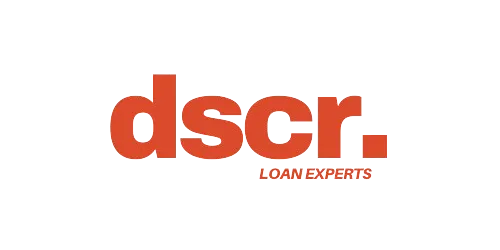
30 Year DSCR Loan Rates: How to Secure the Best Terms
For real estate investors seeking long-term financing solutions, 30-year DSCR loans are an attractive option. These loans emphasize the property's cash flow and net operating income (NOI) over the borrower’s personal income, making them ideal for those with unconventional income streams. With competitive 30-year DSCR loan rates and flexible terms, these loans are designed to meet the needs of investors looking to purchase or refinance rental properties or other investment properties.
In this guide, we’ll explore how DSCR loans work, the factors affecting DSCR loan interest rates, and tips for securing the best DSCR loan rates for your next real estate deal.
What is a 30-Year DSCR Loan?
A 30-year DSCR (Debt Service Coverage Ratio) loan is a type of long-term financing specifically designed for real estate investors and commercial property owners. Unlike traditional loans that primarily rely on the borrower’s pay stubs, tax returns, or personal income, DSCR loans focus on the income generated by the property itself.
The emphasis is on the property's net operating income (NOI) and its ability to generate positive cash flow, ensuring the property can comfortably cover its debt obligations. This makes 30-year DSCR loans a valuable option for investors seeking flexible financing solutions based on property performance rather than personal creditworthiness.
Key Features of a 30-Year DSCR Loan:
Long-Term Stability: A 30-year term ensures predictable monthly payments, making it easier for investors to manage their finances and plan for future investments.
Fixed or Adjustable Rates: Borrowers can choose between fixed DSCR loan interest rates or adjustable options tied to benchmarks like the Secured Overnight Financing Rate (SOFR).
Lower Monthly Payments: The extended repayment term spreads out loan payments, resulting in lower monthly payments compared to shorter-term loans.
Property-Based Qualification: Qualification is based on the property's cash flow rather than the borrower’s income, credit score, or debt-to-income ratio.
Current DSCR Loan Rates
As of December 2024, the interest rates for 30-year Debt Service Coverage Ratio (DSCR) loans typically range from approximately 6.125% to 8.000%. These rates can vary based on several factors, including the borrower's credit score, the property's cash flow, and the specific lender's terms.
General Range:
Rates are currently between 6.125% and 8.000% for 30-year fixed DSCR loans.
The average rate is around 7.39%, which is slightly higher than conventional mortgage rates.
Factors Influencing Rates:
Debt Service Coverage Ratio (DSCR): A higher DSCR indicates better cash flow relative to debt, which can lead to lower rates.
Credit Score: A minimum FICO score of 660 is often required, with better rates available for higher scores.
Down Payment: Typically, a down payment of 20-25% is required, which can also affect the interest rate.
Comparison with Conventional Loans:
DSCR loans generally have rates that are 1-2% higher than conventional loans, which are currently averaging around 6.31%.
When considering a 30-year DSCR loan, it's essential to evaluate your financial situation, including your credit score and the expected cash flow from the property. This will help you secure the most favorable interest rate.
How does a DSCR Loan Work

The Debt Service Coverage Ratio (DSCR) is the key metric used by lenders to evaluate a DSCR mortgage loan. It measures whether a property generates enough gross rental income to cover its loan repayments.
DSCR Formula:
DSCR = Net Operating Income (NOI) ÷ Annual Debt Service
Net Operating Income (NOI): The property’s revenue after deducting operating expenses like maintenance, taxes, and insurance.
Annual Debt Service: The total yearly cost of the loan payments, including principal and interest.
For example, a property with an NOI of $125,000 and annual debt of $100,000 has a DSCR ratio of 1.25. Most lenders require a minimum DSCR requirement of 1.0 to 1.25, with a good DSCR ratio being 1.25 or higher.
Benefits of a 30-Year DSCR Loan

Predictable Cash Flow: Fixed DSCR loan rates ensure steady monthly payments, giving investors better control over their cash flow.
Lower Down Payment Requirements: Compared to conventional loans, many DSCR lenders offer competitive terms with a down payment as low as 20%-25%.
Flexibility for Real Estate Investors: These loans work for various rental properties, including single-family homes, multi-family units, and short-term rentals.
Leverage Property Income: Investors can secure financing based on the property's income without heavy reliance on their personal finances.
Factors Affecting 30-Year DSCR Loan Rates
The final interest rate on a DSCR mortgage loan depends on several factors:
DSCR Ratio: A higher DSCR ratio indicates lower risk, leading to more competitive rates. Properties with a negative cash flow or a borderline DSCR may face higher loan rates.
Loan-to-Value (LTV) Ratio: Lower LTV ratios (e.g., 75% instead of 85%) often result in a lower interest rate.
Borrower Credit: While DSCR loans prioritize property income, a strong borrower credit score (typically above 680) can improve terms.
Market Trends: DSCR interest rates fluctuate based on market conditions, including the 5-Year US Treasury Rate and lender competition.
Loan Product and Terms: Adjustable-rate DSCR loans tied to benchmarks like the SOFR may start with lower rates but carry higher risk if rates increase.
Tips for Securing the Best DSCR Loan Rates

Shop Around: Compare offers from multiple DSCR lenders to find the most competitive rates and favorable terms.
Provide a Larger Down Payment: A larger down payment reduces risk for lenders, often resulting in better loan rates.
Optimize Your Credit Profile: Improving your credit score can help you secure a lower interest rate, even if the loan is based on the property’s performance.
Negotiate Fees: Request a breakdown of fees, including origination costs, to ensure you’re getting the best value.
Use a DSCR Loan Calculator: Tools like a DSCR loan calculator can help you estimate your loan amount, potential monthly payments, and whether you meet the minimum DSCR requirement.
DSCR Loan Considerations and Risks

While 30-year DSCR loans offer significant benefits, investors should be aware of potential challenges:
Prepayment Penalties: Some lenders impose penalties for early repayment. These penalties (e.g., a 3-2-1 or 5-4-3-2-1 structure) can add to the loan’s overall cost.
Market Conditions: Fluctuations in the real estate market can impact property values and rental income, potentially affecting the DSCR ratio.
Property Performance: A drop in the property’s income due to vacancies or increased operating expenses could lead to negative cash flow, making debt repayment challenging.
Higher Risk with Adjustable Rates: Adjustable DSCR loan interest rates tied to the SOFR or other benchmarks can rise over time, increasing monthly payments.
Alternatives to DSCR Loans
If a DSCR mortgage loan isn’t the right fit, consider these alternatives:
Conventional Loans: Require personal income verification and typically offer lower interest rates, but may not work for investors with unconventional income streams.
Hard Money Loans: Short-term loans with higher interest rates, ideal for fix-and-flip projects or real estate investors seeking quick financing.
Non-QM Loans: Designed for borrowers who don’t meet traditional lending requirements, these loans offer flexible terms but may have higher average interest rates.
Conclusion
30-year DSCR loans provide an excellent opportunity for real estate investors to leverage the income potential of their rental properties. With benefits like lower monthly payments, long-term stability, and qualification based on the property's cash flow, they’re ideal for those looking to grow their portfolios.
To secure the best DSCR loan rates, focus on improving your financial health, comparing offers from many lenders, and ensuring the property's income supports the loan. By understanding the debt service coverage ratio, evaluating lender options, and planning for potential risks, investors can confidently use DSCR loans to achieve long-term success in real estate investing.


